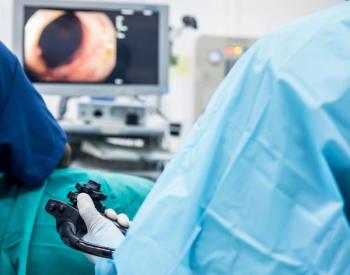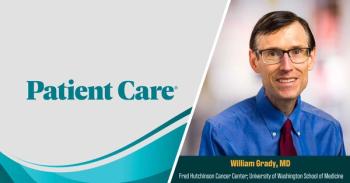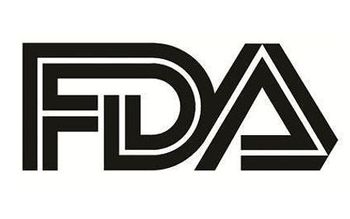
Moving patients from considering screening to completing it remains the central challenge in colorectal cancer prevention, Fendrick explained to Patient Care.






Moving patients from considering screening to completing it remains the central challenge in colorectal cancer prevention, Fendrick explained to Patient Care.

Fendrick considers the current state of colorectal cancer screening in the US, emphasizing limited colonoscopy capacity and patient preferences for at-home tests.

Your daily dose of the clinical news you may have missed.

Real-world data from 20 000 patients demonstrate significantly higher adherence rates with Shield blood test vs colonoscopy and stool-based screening methods.

New research links high ultra-processed food intake to increased risk of precursors for early-onset colorectal cancer in women under 50.

Topics include rideshare support for colonoscopy, rt-CGM benefits in GDM, semaglutide and food noise, vaccine views, and MI etiology.

A 10-year microsimlation model of annual MCED testing revealed signficant reductions in late-stage cancer diagnoses, particularly for cancers lacking routine screening,

Patient preferences favor home-based tests but MDs do not, while cost barriers significantly impact follow-up completion, according to the 2 new analyses.

Colorectal cancer screenings for 45- to 49-year-olds surge nearly tenfold after new guidelines, highlighting significant shifts in public health practices.

Smoking drives lung cancer deaths, but race predicts breast/prostate mortality. New study reveals distinct community factors for each cancer type's outcomes.

Your daily dose of the clinical news you may have missed.

William Grady, MD, highlights the convenience and compliance of blood-based tests compared to colonoscopy and stool-based tests for colorectal cancer screening.

William Grady, MD, talks about the latest research in colorectal cancer, including treatments targeting senescent cells that contribute to tumor formation.

New data will be shared from the PATHFINDER 2 study in asymptomatic patients and the SYMPLIFY study in patients experiencing symptoms.

A new modeling study suggests rideshare programs could double colonoscopy completion after abnormal FIT results, cutting colorectal cancer incidence and deaths while saving health care costs.

Your daily dose of the clinical news you may have missed.

This week’s podcast episode covers CRC screening, GLP-1 eligibility in youth, women’s heart health, FIT outreach, and ultraprocessed food risks.

Your daily dose of the clinical news you may have missed.

If FIT results indicated colonoscopy, respondents preferred personal follow-up vs digital; significant barriers to undergoing fear of the test and positive cancer finding were the most significant barriers to follow-up.

Your daily dose of the clinical news you may have missed.

New data show up-to-date CRC screening rose from 20.8% in 2019 to 33.7% in 2023, with gains driven by stool testing and colonoscopy.

For initiating colorectal cancer screening in average-risk young adults, a default mailed outreach strategy outperformed 3 active choice options in a randomized study.

As the incidence of young-onset colorectal cancer continues to rise, the findings from a large Taiwanese population-based study support lowering the age for initial screening.

Your daily dose of the clinical news you may have missed.

Breakthrough device designation for the multicancer detection test is supported by clinical validation data demonstrating an overall specificity of 98.6% and sensitivity of 60%.